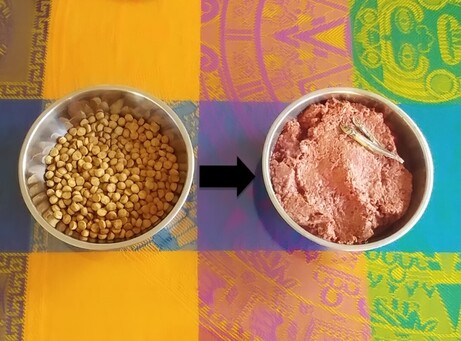|
We all know by now that you are what you eat. Albeit, yes diet is very important, but does changing your pets' diet mean that that is sufficient enough to reverse all the issues they are having? Not necessarily. Consider this, a raw fed dog or cat can still have issues such as pancreatitis, allergies, skin problems, etc. even after they are switched to a raw diet. So then, what does this all mean? It truly does take reparative actions to target specific ailments, and even though diet can most certainly help, it doesn’t always mean it will solve everything. Although there are many, here are a few reasons as to why even after changing your pets’ diet will still not resolve health issues, or at least not right away;
Sad part is, it doesn’t take long to disrupt flora, but it does take quite a bit of time to build it up again, especially if your pet has been on a processed diet for a long time, as was maybe the case for your pets’ parents. It is very imperative that the right bacteria be introduced to your pets’ gut microbiome to help their gut out, especially when switching to a new diet. 2. Lack of enzymes: Enzymes are organic catalysts in the body. Our bodies however, and your pets’ bodies have a limited ‘enzyme potential’. What that means, is that every individual is born with the ability to make a certain amount of enzymes. As enzymes get used up daily, the body’s ability to manufacture enzymes efficiently start to decline, resulting in things like disease, low energy, accelerated aging, etc. Enzyme deficiency through research has been linked to things like allergies, asthma, cancer, indigestion, arthritis, toxicity, depression, anxiety, skin problems, cardiovascular issues, and metabolic disorders. Fact: Did you know that canines lack the enzyme to digest peas. 3. Treats- the hidden offender: There can be a whole slew of offenders in your pets' treats that you may be unaware of, and that is because there is no third party testing or regulations on pet treats (or even pet food for that matter!), so, why would they list these offenders? Well, they don't. A manufacturer is not going to list sourcing, whether the quality of the ingredients is human grade or not, nor are they going to disclose how the product is treated (chemically or not). It also doesn't make sense to feed a wholesome diet, only to drop the ball when it comes to treats to spoil your fur child with. Every treat sold at Thrive4life Holistic Pet Food store not only has a high nutritional value, but we can personally guarantee that nothing has been bleached or has been chemically treated, we are very proud to sell all- natural pet treats that even serve as 'functional foods', meaning they have a lot of nutritional value, and are not just empty calories. 4. Always fed the same protein: This is true especially for raw feeders. Look, I get that chicken is the most economical protein to feed, but it doesn’t mean they should be fed chicken 7 days a week- 365 days a year people! Same goes for any proteins, remember to always switch it up once they get going consistently on a raw diet. The body will get used to the same exact amino acids fed daily in and out, and can become resistant to it, which will cause allergic-like symptoms. So, be in-tune with what protein(s) you are feeding your pets on a constant basis. As a guideline, I always say to rotate between 3-4 proteins per week. 5. An underlying issue: Sometimes, what can happen when switching to a more natural and balanced diet, is the bodies inability to completely detox. Why? Because prior to detoxification, if all the channels for drainage are not open and the organism is under nourished, catastrophe can happen. The health damaging effects of many trapped toxins in the lymphatic system have no where to go, which can result in things like systemic inflammation and tumor growth. All cells need and depend on the intact functioning of this system for their continued existence and health. Can processed foods lead to toxin accumulation? Yes. Can vaccines that are laden with heavy metals lead to toxin accumulation? Yes. Can toxins be accumulated environmentally? Yes This is why it is so important to lead a very ‘clean’ lifestyle, both for yourselves and your pets (not to mention the planet we all live in!). Give their bodies what they need (and then some), so you can watch them thrive and not just merely survive. Contact us for more information and custom ‘how-to’s to get your pet(s) thriving!
0 Comments
|
AuthorLucy is an avid pet mom; with dogs, cats, goats and horses to keep her busy! All of her pet 'kids' are fed a species appropriate diet with proper supplementation so she can watch them thrive. Her expertise and experience lie in nutraceutical supplementation and is a health advocate for proper diet and nutrition. Her other passions in life are schutzhund and equestrian riding. Archives
July 2024
Categories |




 RSS Feed
RSS Feed